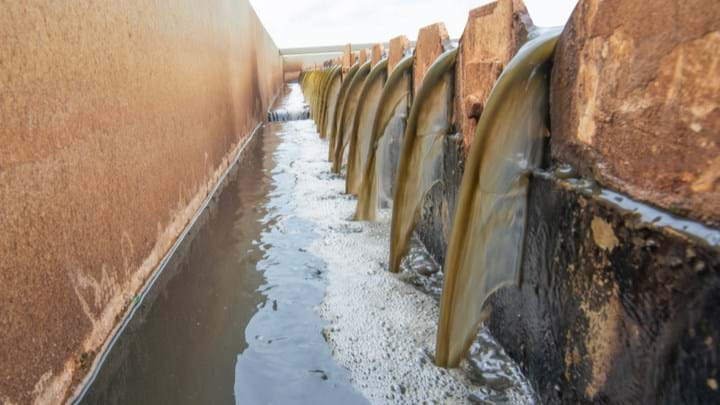UK regulator relaxes effluent rules as water treatment firms begin running out of chemicals

A SHORTAGE of chemicals used to treat wastewater in the UK has led the Environment Agency to relax rules and allow facilities to release untreated effluent. A lack of heavy goods vehicle (HGV) drivers is causing chemicals supply chains to fail, an industry group has warned.
The Environment Agency has issued a regulatory position statement (RPS) that relaxes permitting rules until 31 December, noting that treatment works who cannot secure the chemicals they need because of supply chain failures brought on by Brexit or Covid-19, will be allowed to release untreated effluent but must get written permission first.
“We are currently experiencing some disruption to the supply in England of ferric sulphate, a chemical used at some drinking and wastewater treatment sites,” said the trade association Water UK. “This issue has arisen due to a shortage of HGV drivers in the UK. There is no shortage of ferric sulfhate in factories; the issue is solely one of distribution.”
Ferric sulphate is used to remove phosphorous at wastewater treatment plants. An excess of phosphorus starves rivers of oxygen, killing animals and plants. Water UK says the shortage affects a small number of water companies and does not expect the situation to improve immediately. It says there are no issues with chemicals reaching drinking water facilities and there is no risk to the treatment of drinking water.
Commenting on the wider impact of driver shortages on UK chemicals distribution, Tim Doggett, CEO of the Chemicals Business Association, said: “The supply chain situation in the UK is deteriorating. Our September industry survey, to be released next week, shows that 96% of member companies are now experiencing issues with UK haulage, up from 63% in our last survey in June.”
He warned that the impact of driver shortages is likely to get worse before it gets better.
Commenting on the relaxation of rules, a government spokesperson said: “This action is strictly time-limited and there are robust conditions in place to mitigate risks to the environment. The most sensitive and high-risk watercourses will not be affected and any company planning to make use of this short-term measure must first agree its use with the Environment Agency, which will be checking compliance.”
Government, industry and regulators say they are working together to resolve the situation. Efforts include extending the hours drivers can make deliveries and setting up a working group to manage the driver shortage.
The Environment Agency has said firms must prioritise using the chemicals they have to treat effluent that will have the greatest potential to cause environmental harm. It has issued conditions that treatment works must comply with, and said companies must contact the agency if they think they will have to break compliance rules and if they expect to run out of chemicals within two weeks. More information is available here.
The shortage of drivers has been caused by a combination of factors. Covid-19 led European drivers to return home and Brexit immigration rules have put them off returning. Meanwhile Covid-19 restrictions prevented would-be drivers from taking tests. The UK Road Haulage Association estimates there is a shortage of around 100,000 drivers and it will take 18 months to train enough drivers to tackle the current shortage.
Recent Editions
Catch up on the latest news, views and jobs from The Chemical Engineer. Below are the four latest issues. View a wider selection of the archive from within the Magazine section of this site.




